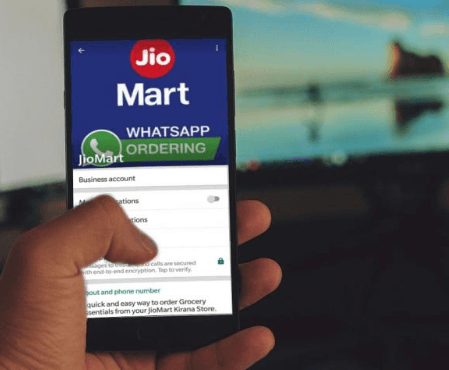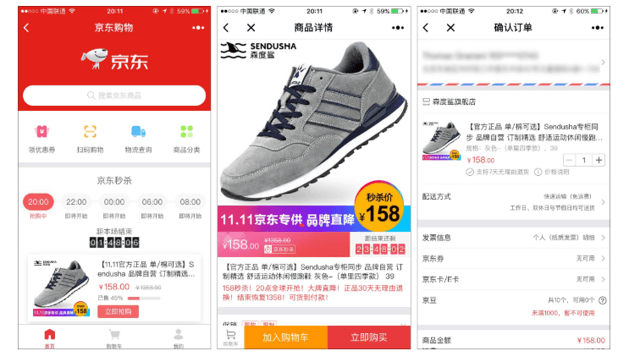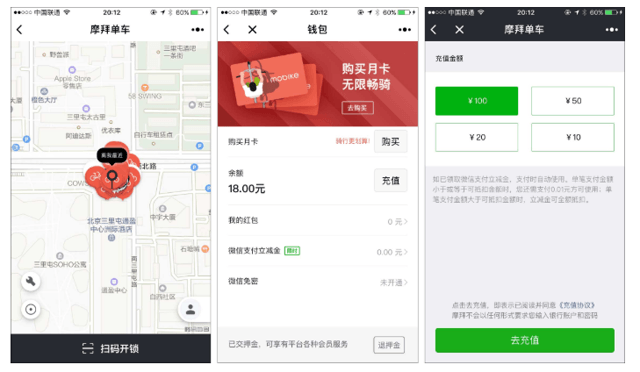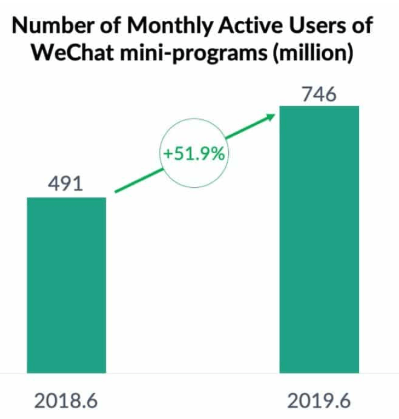How JioMart Can Help Facebook's WhatsApp Monetize 400 Million Users
by Dilantha De SilvaSummary
- JioMart launched a pilot project on April 27 in which WhatsApp plays a major role.
- On May 22, the company announced the official launch of the JioMart platform.
- The success of WeChat Mini Programs gives insights about how Facebook will be planning to monetize WhatsApp.
- As the battle for e-commerce market share intensifies in India, JioMart will benefit from built-in advantages and WhatsApp will be an indirect beneficiary of JioMart's success.

When Facebook Inc. (FB) invested $5.7 billion in Jio in April, I published an article discussing why this move would be a step forward in monetizing WhatsApp. In less than a month, Facebook, courtesy of its investment in Jio, is another step forward in achieving this objective. Reliance Industries launched JioMart in April as a pilot project to tap into the promising e-commerce industry in the country. Now, JioMart is on the brink of expanding further upon the initial success of the pilot project. WhatsApp, as I will discuss in this analysis, is at the center of JioMart's roadmap to success. Even on the back of a 60% appreciation of the share price since March 16, Facebook still seems undervalued.
JioMart is more like Alibaba, less like Amazon
Whenever an e-commerce store pops-up in some corner of the world, investors, and even consumers, naturally compare the newcomer with Amazon. In JioMart's case, the operating model is similar to Alibaba, not Amazon.
JioMart operates as an online-to-offline marketplace, meaning the platform will connect brick-and-mortar grocery stores with consumers who are shopping online. JioMart will connect consumers with the nearest grocery store to fulfill their orders. Because of this operating model, JioMart will not hold inventory and would not be required to maintain warehouses as Amazon does.
This is how WhatsApp comes into play
JioMart launched its online store on May 24. However, the company launched a pilot project on April 27, which is centered on WhatsApp. Here's a step by step guide on how a customer can order goods using the popular social messaging platform.
Step 1 - WhatsApp users send a "Hi" to a dedicated number for JioMart.
Step 2 - The user receives a welcome message along with a shopping list that will remain active for 30 minutes.
Step 3 - The user will be required to fill in with personal details such as the mobile number and the address.
Step 4 - The user will then be directed to an online catalog that could be used to order the required grocery and other items.
Step 5 - The user receives an invoice.
Step 6 - Ordered items will be delivered to the address provided and the user is expected to pay in cash. Alternatively, a user can collect the items from the nearest grocery store as well.
It might seem a lengthy process that might not work well, but it's important to note that this is a pilot project that was launched to assess how users would respond. When WhatsApp Pay is widely available in India, which could be as early as the end of this month according to some sources, a user would be able to seamlessly shop for their groceries and any available products through the WhatsApp Business section and pay for the items on the platform itself.
The entire idea of launching this pilot project on WhatsApp, as far as I believe, is to provide a unique shopping experience to the more than 400 million WhatsApp users in the country. To do this, I expect JioMart and WhatsApp to launch something similar to WeChat Mini Programs in China. These Mini Programs function like an app within an app. In a nutshell, these Mini Programs allow an e-commerce store to develop an app within WeChat that functions very similarly to an online shopping mobile application. WeChat users can easily search for what they are looking for and complete the entire shopping process on these sub-applications developed on the WeChat ecosystem. Here are a couple of images to help you get a better idea about the Mini Programs.


Source: Walk The Chat
Even Tesla has a Mini Program that lets users locate charging stations and schedule a test drive. The number of active Mini Program users on WeChat surpassed 700 million in 2019, growing more than 50% from 2018.

Source: Walk The Chat
The success of WeChat is a wake-up call for Facebook to take monetizing WhatsApp seriously, and the company seems to be on the right track. I would be surprised if the collaboration between Facebook and Jio does not result in the development of a similar shopping platform on WhatsApp for Indian users.
It's reasonable to assume that WhatsApp Pay will be available on JioMart's online platform as well, side by side with other payment options.
The competitive landscape
The battle for market share in the Indian e-commerce industry was already intensifying with the aggressive strategies of Amazon and Walmart's Flipkart. JioMart's entry will further intensify this battle. JioMart is likely to position itself as a unique player that takes online shopping to a different level by onboarding farmers and mom and pop stores to the e-commerce ecosystem of the country. Because the business model of JioMart will be centered on sourcing products from local grocery stores, the platform has built-in advantages over its peers to provide a best-in-class shopping experience to customers. Below are some of the features I'm talking about and you would agree with me when I say that most of these features are currently available on Amazon Prime that charges $119 per annum.
- Free home delivery
- No minimum purchase value
- Express delivery within 24 hours
- No questions asked return policy
Reliance Industries, the parent company of JioMart, already has a presence in the Indian retail market through Reliance Fresh. According to the company website, the company operates 621 stores across the country and has been operating in the country since 2006. Their experience in the retail space and the existing customer base will come in handy to build JioMart into a mainstream player in the e-commerce industry.
I do not plan to undermine the threat from Amazon, but JioMart has unique advantages that might help the company gain traction within a few years. This is good news for WhatsApp.
Takeaway
An investor should never underestimate the power of the small and medium business owners and the community surrounding these businesses in India. Jio's rise to become the leading telecommunication services provider in India in just 4 years is the best example of this. JioMart will be the first platform in the country to bring these businesses online. WhatsApp Business and WhatsApp Pay will play a vital role in onboarding these small business owners to JioMart and Facebook will most likely partner with JioMart to introduce an in-app shopping experience once payment options on the social messaging platform are widely available across the country. Taking these positive developments into consideration, I have revised my revenue growth projections upwards for the next 5 years, resulting in an increase in the intrinsic value estimate for Facebook from $276 to $313 per share.
If you enjoyed this article and wish to receive updates on my latest research, click "Follow" next to my name at the top of this article.
Disclosure: I am/we are long FB. I wrote this article myself, and it expresses my own opinions. I am not receiving compensation for it (other than from Seeking Alpha). I have no business relationship with any company whose stock is mentioned in this article.